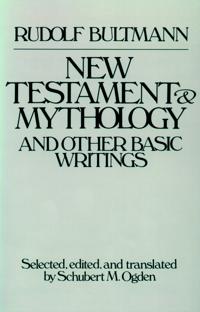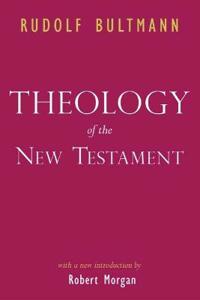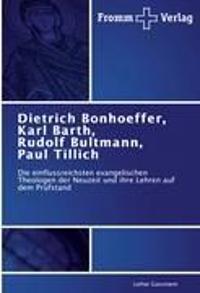New Testament and Mythology and Other Basic Writings (Häftad)
avRudolf Bultmann
ISBN: 9780800624422 - UTGIVEN: 1984-10Rudolf Bultmann
ISBN: 9780800634025 - UTGIVEN: 1991-12Bultmann's pioneering study of the New Testament initiated a new era in biblical studies in the Twentieth Century. Together with Karl Barth, Bultmann broke with liberal theology, but his often misunderstood program of demythologization took him in a radically different direction from Barth. In many [...]
Rudolf Bultmann (Inbunden)
avKonrad Hammann
ISBN: 9781598151183 - UTGIVEN: 2013-03Rudolf Bultmann was the giant of twentieth-century New Testament scholarship. His pioneering studies in biblical criticism shaped research on the composition of the gospels, and his call for demythologizing biblical language sparked debate among Christian theologians worldwide. This definitive biogr[...]
Rudolf Bultmann
ISBN: 9781619708136 - UTGIVEN: 2016-08How can modern scientific humanity understand the strange religious language of the Bible? This is one of the questions Rudolf Bultmann (1884-1976) spent his life answering. As a devout Lutheran committed to the Christian faith, Bultmann's concern was how to make Christianity intelligible in the twe[...]
Theology of the New Testament (Häftad)
avRudolf Bultmann
ISBN: 9781932792935 - UTGIVEN: 2007-02It is difficult to overestimate the singularity of Rudolf Bultmann. Bultmann's Theology of the New Testament changed the course of New Testament interpretation and has continued to influence the field until today. As ambitious in scope as it is consistent in method, Bultmann's volume asks and provid[...]
Rudolf Bultmann Und Seine Zeit: Biographische Und Theologische Konstellationen
ISBN: 9783161549113 - UTGIVEN: 2016-11Die befreiende Wahrheit des christlichen Glaubens sachgemass und gegenwartsbezogen zugleich auszusagen, war ein zentrales Motiv der theologischen Arbeit Rudolf Bultmanns. Dies pragte auch seinen Dialog mit anderen Gelehrten. Erorterte er mit Hermann Gunkel Fragen der Formgeschichte, so setzte er sic[...]
Dietrich Bonhoeffer, Karl Barth, Rudolf Bultmann, Paul Tillich (häftad)
ISBN: 9783841601643 - UTGIVEN: 2011-07Myth and Christianity (Pocket)
avJaspers, Karl, Bultmann, Rudolf
ISBN: 9781591022916 - UTGIVEN: 2005-05-20Two of the most brilliant German thinkers of the twentieth century were Karl Jaspers and Rudolf Bultmann. Jaspers, the philosopher, and Bultmann, the theologian, were both influenced by the philosophy of Martin Heidegger and the rise of the existentialist movement. Late in their careers they interac[...]











